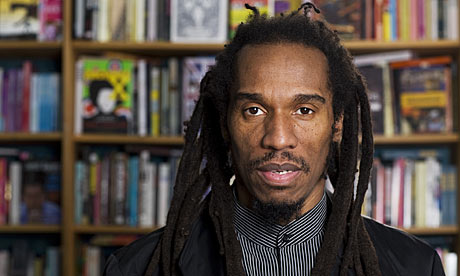
When the poet Benjamin Zephaniah recently stated that Black and Asian students in the UK are only told ‘half the story’ in the study of history, he inadvertently contributed to the long-standing debate that has lingered not only in the ivory towers, but also at the heart of society. Having famously turned down his OBE on the basis that “Empire evokes slavery, brutality, and oppression” and holding republican views have been referred to in the past as ‘Anti-British’, Zephaniah’s comments should be welcomed in that they illuminate some of the most pressing challenges of our generation – particularly relating to identity, citizenship and the role of public institutions today.
Such comments provide an opportunity to understand how history
operates. Though Zephaniah’s argument is by no means novel, it does
contribute to a much wider debate on how Europe should deal with it’s
imperial past, particularly within multi-racial and multi-ethnic
societies. Should the history of Empire be premised on negative notions
of guilt and salvation, or exude a forceful triumphalism? Indeed, the
former has been characterised through a wealth of post-colonial
literature, particularly from scholars such as Catherine Hall and Edward
Said, whose work illustrates the subjugation of colonial subjects by
European Imperial structures in ways that are almost alien to students
of History today.
Conversely, latter polemics of Empire, probably best asserted through
Niall Ferguson, construct an image of ‘Imperium’ as a revolutionary
force, while being somewhat apathetic towards illuminating the
tribulations of it’s victims. The conflicts of ideology evident in
post-colonial scholarship provide an extremely difficult environment for
our public education institutions, particularly those providing
secondary education, to teach things like the history of Empire.
Yet, rather than scholarship itself, the structure of history
teaching at public institutions may perpetuate the problems Zephaniah
speaks of. Most students who studied history as a GCSE or A level
subject are likely to agree that their experience of the subject
remained somewhat confined to specific periods, with a practice reduced
to approved textbooks.
Indeed, students who have gone on to study History in university will
note how academic research methods vastly contrast with the neatly
boxed narratives of the curriculum-based system. Indeed, one could argue
that the latter actively encourages historical events to be both
generalised and arbitrarily defined to meet the approved standard of
Education bureaucrats. This is not to say that history teaching
formulates within an ideological paraxis, but rather that a restraining
cirricula provides little capacity for critical thought against
historical generalisations.
Further, the comments also address a root problem in historical
scholarship that many – not least, Niall Ferguson – have warned about;
the dialogue between universities and public schools is extremely weak.
Addressing the Cambridge Union in 2009, Ferguson laid a humorous, yet
savage attack on the academic community in failing to bring their
research outside of the university. The result was not only that
children in public schools failed to receive a vicarious and
wide-ranging historical education, but also that many students left
school feeling disenfranchised with history itself. This point is
extremely crucial if we consider the large amount of poor and ethnic
minority children within our public education system today.
Zephaniah’s comments ultimately highlight two problems. First, the
dangers of an ideologically driven history should be heeded,
particularly by the current education secretary, Michael Gove. More
important however, is the danger of university departments failing to
engage with the wider public. Such introversion reduces history to
textbooks written by untrained historians directed by political
bureaucrats, which will ultimately marginalise all school pupils.
No comments:
Post a Comment